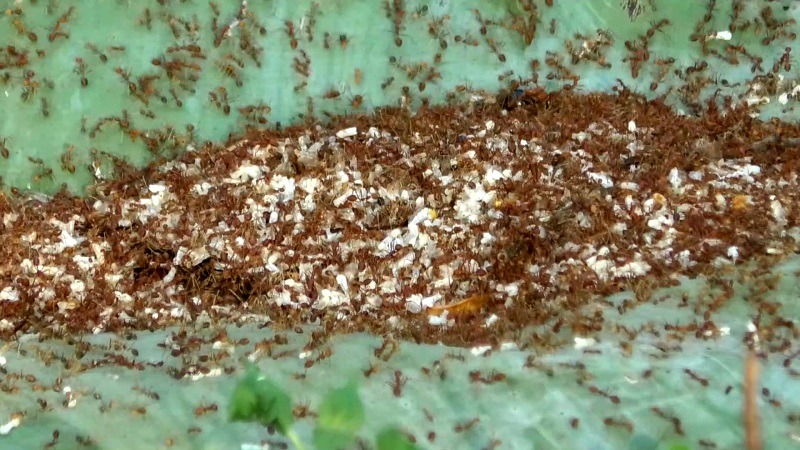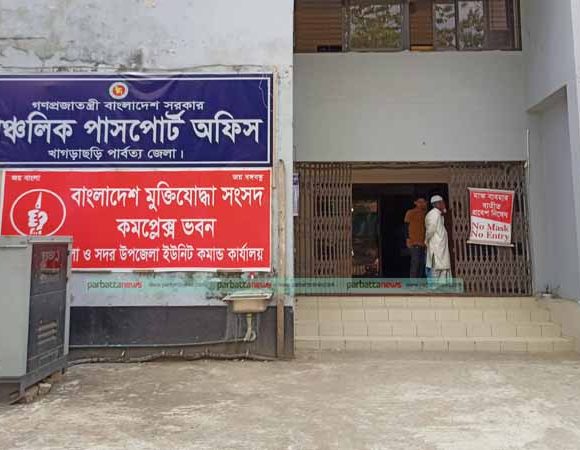In Khagrachari, over 200 families thrive on red ant egg trade

STAFF REPORTER, KHAGRACHHARI
It might sound unbelievable, but it’s true! In Khagrachari, over 200 families have found a unique way to earn their livelihood – by collecting and selling red ant eggs. They traverse through dense forests and jungles, diligently searching for red ant eggs nestled in tree branches and under leaves. This unusual occupation has found a foothold in various areas of Khagrachari, including Manikchari, Matiranga, Laxmichari, Guimara, and Panchhari, engaging more than 200 families.

Take Jasim Uddin from the Ramshira area in Matiranga, for instance. A few years back, he was a farmhand working on others’ lands. Today, he has carved out an independent career for himself in the collection of red ant eggs. His daily routine involves scouring both residential areas and forests, gathering red ant eggs from various trees. Every evening, he sells what he has collected to a local vendor, a practice that has been sustaining his family well.

Jasim Uddin is not alone in this endeavor. Similar to him, over two hundred individuals in Matiranga, Manikchari, Laxmichari, and Panchhari are supporting their families through this unique form of gathering.
Jasim Uddin explains the process: “From Baishakh to Agrahayan, we collect eggs from red ant nests found in the trees of forests and gardens. We use a bamboo pole with a bamboo slice attached at one end to reach the nests. The collected eggs, after being separated from the ants using a net and cloth on a table, are sold to local wholesalers. We can earn about 500 to 600 taka per kilogram of red ant eggs, and during the peak season, each of us collects up to one and a half to two kilograms of eggs daily.”

Md. Jahangir Alam, a wholesaler in the red ant egg business, highlights their use as fishing bait for enthusiasts and as feed in fish farms. “Once collected, we swiftly deliver the eggs to various markets, including Chittagong, Dhaka, and Feni. I purchase these eggs for about 500 to 650 taka per kilogram and sell them for 700 to 800 taka per kilogram. The demand spikes on Thursdays, ahead of the weekend,” he says. Alam believes that proper training in the collection and preservation of red ant eggs could open up more employment opportunities for many.”














